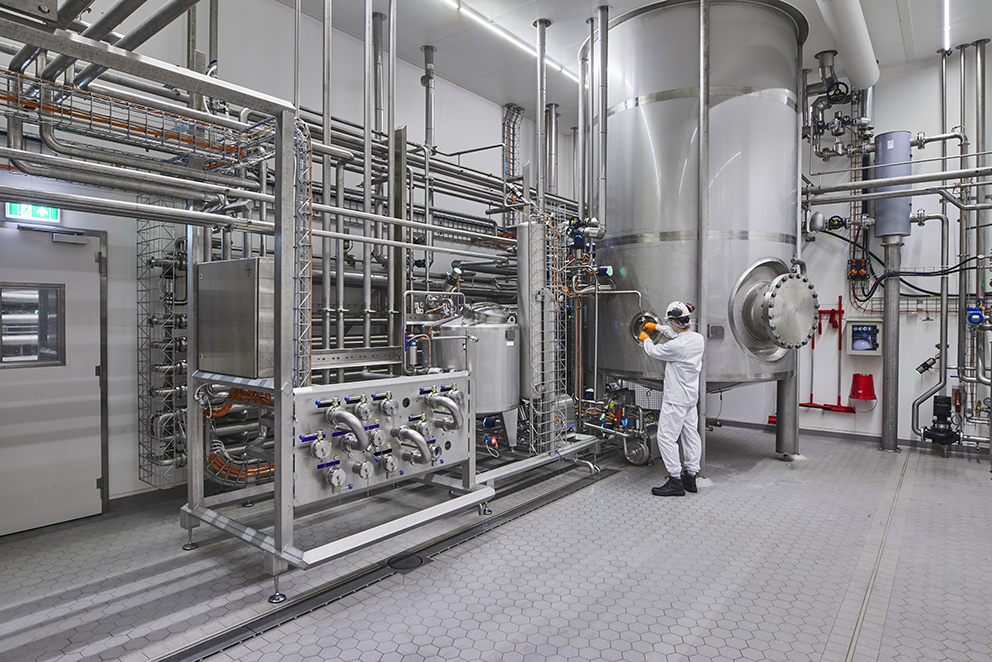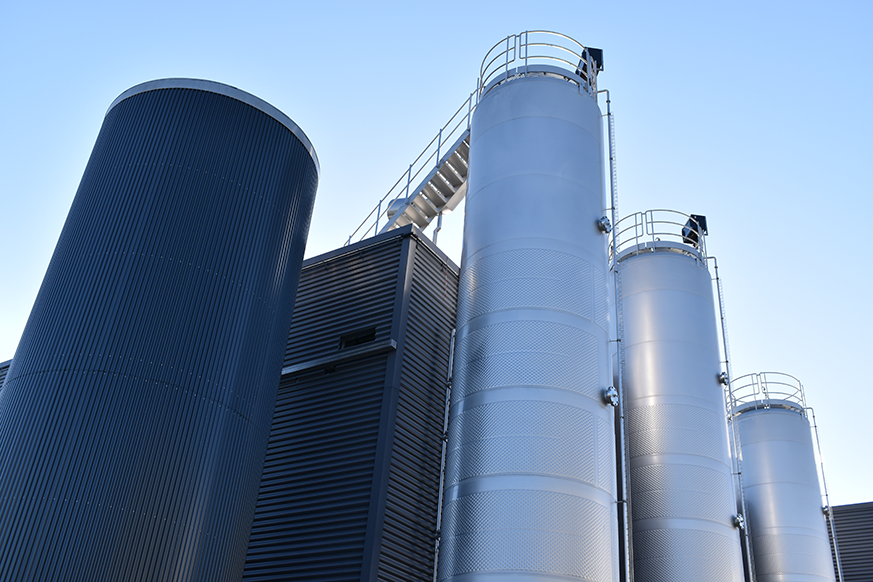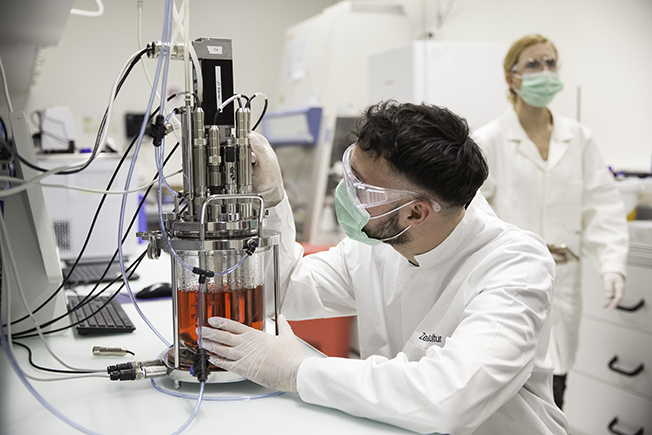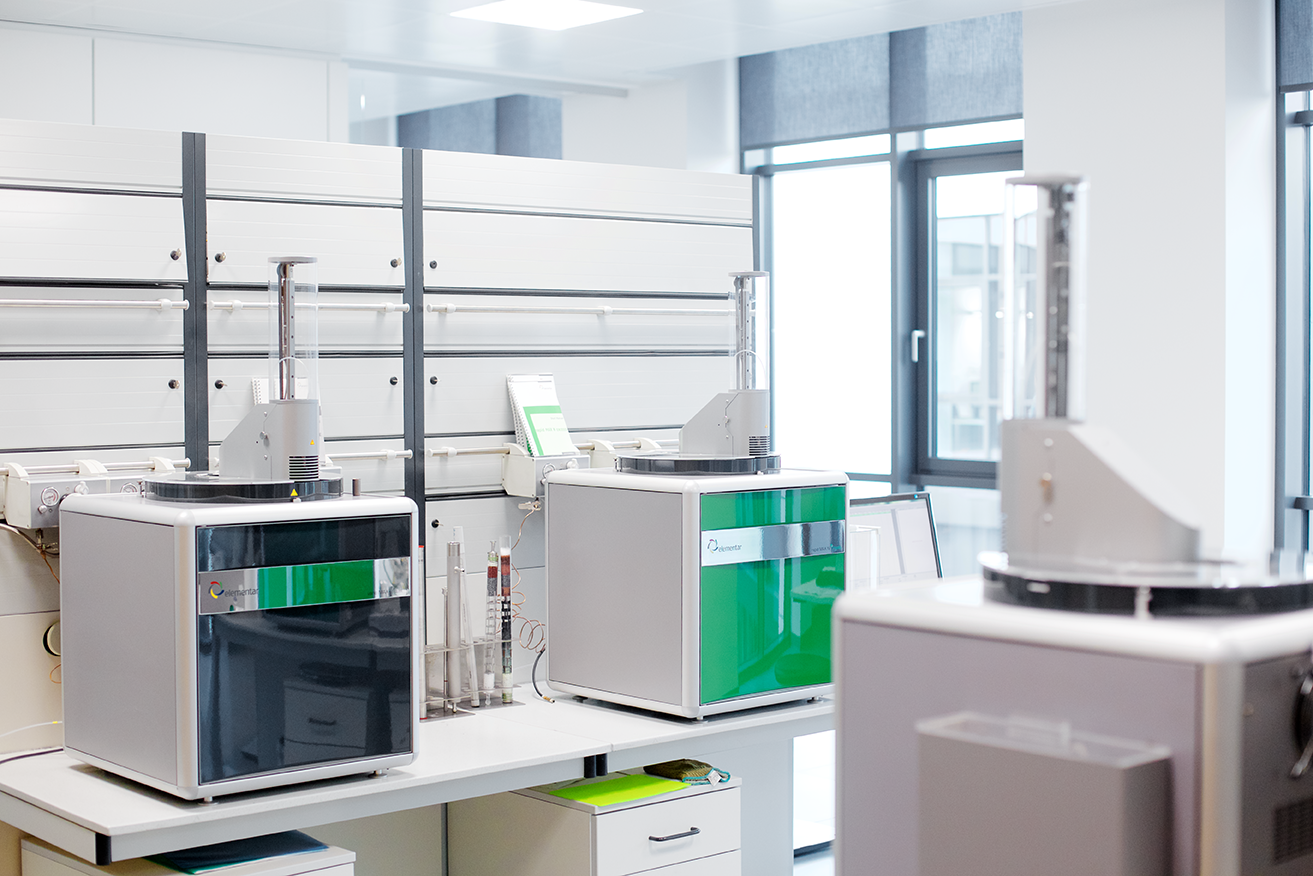

How fungal fermentation is disrupting the protein landscape
Fungal fermentation promises delicious and nutritious options for food manufacturers, while reducing environmental impact and combating climate change. But not all approaches and products are equal, as The Protein Brewery’s Sue Garfitt explains further
Understanding consumer needs has been a driving force for FMCG veteran, Sue Garfitt, throughout her 25 years in the F&B sector. “We’re consumers ourselves, after all,” says the former Alpro CEO, who took the helm at The Protein Brewery in September 2022. “Food plays a huge role in all our lives, but I’ve always been especially fascinated by its potential to impact our choices and health.”

Building upon her plant-based food experience at Alpro, Garfitt believes “alternative proteins have an exciting future – an uncharted territory ripe for innovation”. And while The Protein Brewery, a Netherlands-based fermentation food tech producing a fungal biomass ingredient called ‘Fermotein’, might seem a far cry from major dairy alternative success story Alpro, the transition from major FMCG to startup “felt like a natural next step” for the UK-born plant-based pioneer.
But let’s rewind a little. The Protein Brewery’s journey began in 2011 when company founder, Wim de Laat, was at BioscienZ. “Building on his work at DSM, he sought to leverage fungal fermentation to create a compact and scalable solution for the next generation of alternative proteins,” Garfitt reveals. “In his BioscienZ lab, years of dedicated research led him to identify the perfect strain, one both robust and boasting unique characteristics ideal for the fermentation process. That ‘survival-of-the-fittest’ approach marked the birth of The Protein Brewery in 2020."
Leadership role
Garfitt was brought on board to spearhead the company’s next phase of development – scaling up the business and synchronizing the production and commercial streams. But what specifically does she feel she brings to the table? “Leadership, first and foremost,” she states. “It doesn’t matter if it’s a team of five or 5,000, guiding with inspiration and a clear vision is paramount. What is our purpose? What legacy do we want to leave? What resonates with people enough to invest in our journey and join us on this path?”

However, Garfitt is keen to point out that vision alone isn’t enough. “The food-tech world often gets caught up in the technical, which is crucial, but without industry knowledge, it’s like baking the most fantastic cake without ever having tasted one. My food industry experience helps to bridge that gap. We’re not just making food ingredients, we’re creating something consumers will enjoy, engage with, and ultimately value. That’s where the true fulfilment lies.”
Of course, there is a much bigger remit at play here. As we repeat time and time again in these pages, by 2050, our current food system simply won’t be fit for purpose. In fact, even by 2030, the challenges are glaring. “That’s why the shift from animal to plant protein, which I was part of before joining The Protein Brewery, is just the beginning,” Garfitt says. “We need next-generation protein solutions that are far more efficient and compact. Think about it: fungal protein through fermentation has 100 times less impact on the planet compared to animal protein like beef. Even compared to plant-based proteins, it requires three to four times less land and water. Plus, let’s face it, while pea protein plays a role, taste and texture limit its potential. It’s not an easy crop to grow, and it won’t be enough for the future, and many plant proteins are similar. Fungal fermentation is the next stage in our food evolution.”
Proponents believe fermentation offers a sustainable, precise, and efficient way to produce protein: think rapid growth in fermentation tanks, not fields. This means lower environmental impact, reduced risk of disease, and exciting customization possibilities. Imagine proteins tailored to your needs, all while addressing the growing demand for alternatives.
Fermotein is completely tasteless, odorless, and colorless, making it incredibly versatile for new product development”
“At The Protein Brewery, we start with a unique strain of fungus, feed it with glucose (and soon other carbon sources, too), and give it the conditions in which to grow,” says Garfitt, when asked to explain the company’s unique process in layman’s terms. “Once it reaches the perfect stage, we harvest it, pasteurize to stop its growth, and wash it. Then, we press out the water, dry it, and mill it into a fine powder. This dry powder makes our product, Fermotein, incredibly versatile in various food applications.”
The most important feature of Fermotein is its neutrality. Unlike some plant proteins that may have unwanted flavor, Fermotein is completely tasteless, odorless, and colorless, making it incredibly versatile for new product development. “That neutrality allows us to explore diverse applications, opening doors to exciting new possibilities across various markets.”
At the same time, Fermotein packs a top-quality protein profile, mirroring meat more closely than any other plant protein, yet also packed with 35-36%, fiber, which offers benefits such as enhanced immunity and cholesterol control thanks to specific types of beta-glucan and chitosan. “Using the versatile dry format, we’ve started our commercialization journey by incorporating it into baked goods and snacks – applications where you wouldn’t typically expect to find protein, but which dramatically improve their nutritional value without impacting the eating experience. In essence, we are smuggling in goodness and that is game changing for many food manufacturers and consumers.”
Time to scale
And things are really starting to take off for the company. Just a year ago, it was producing mere kilos in its pilot plant next to its laboratory. Now, though, thanks to a recent fundraising round, it has scaled up to a demonstration plant. “This allows us to produce around 2,500 tons annually,” reports Garfitt. “Moving from pilot to industrial scale isn’t easy – it demands expertise in both fermentation science and downstream processing. As it’s a new strain, we are constantly experimenting and refining. But I’m thrilled to say we’ve successfully commissioned the plant. Some mechanical and fermentation tweaks are ongoing, but we’re operational and producing marketable, high-quality product.”
Cash injections
Fermotein’s potential is evidenced by the interest it has attracted in the funding stakes. In November 2020, a €22 million (US$28 million) Series A raise was announced, a round that was led by Novo Holdings, with new investors including Roquette Ventures and Unovis Asset Management. That brought its total investment to €26 million (US$33 million).

But where is the company today in terms of funding? “Most CEOs in our position would tell you the same: fundraising is a way of life,” says Garfitt. “After all, to truly accelerate, you need a secure financial runway. Thankfully, The Protein Brewery is incredibly fortunate to have three top-notch investors who are deeply committed to our mission. And we’re already gearing up for the next step – our Series B fundraise. I’m confident new investors will appreciate our vision and the uniqueness of our ingredient platform and be eager to join the journey. So, to any potential investors out there, we’d love to connect!”
Continuing on the theme, Garfitt admits 2023 was undeniably tougher than 2022. Global factors such as the Ukraine war, high inflation, and geopolitical tensions created a challenging environment. Europe, especially, felt the brunt of energy price hikes. But she is optimistic. “Early signs suggest inflation is easing, and economies are showing green shoots. Investors, eager for promising opportunities, are more open to long-term commitments on propositions that tick the right boxes. Our ambition is to scale our technology and be a leading source of low-cost, sustainable and nutritional ingredients for the food industry.”
Challenges aside, it remains an interesting time in the world of protein but the ‘fungi kingdom’, distinct from both plants and animals, is really starting to show its potential. Awareness is key, though, according to Garfitt. “Although ‘fungi’ might not immediately be top of mind for consumers, ‘mushroom’ resonates more readily. That’s why the Fungi Protein Association, with players like us, aims to educate and ensure a fair playing field compared to other plant protein options.” As for the future, whether it’s precision fermentation or the biomass approach as utilized at The Protein Brewery, Garfitt believes there is immense potential in harnessing these technologies even further. “It’s not simply replacing animal products – it’s refining, combining, and creating new solutions,” she says. “While traditionally the lines were drawn between ‘animal’ and ‘non-animal’, I envision a future where these ingredients can be combined to create different and new food solutions. By 2050, I believe we will see innovative combinations of technologies and sources that will nourish the world.”
Fungal biomass fermentation in particular holds significant promise for transforming the future food system toward greater sustainability, improved nutrition, and efficient resource utilization. Compared to cultivated meat or other emerging technologies, it offers simpler, cheaper and scalable processes. Continued R&D will enable us to address the existing challenges, which will truly unlock the full potential of this exciting technology.
For more information visit www.theproteinbrewery.nl
If you have any questions or would like to get in touch with us, please email info@futureofproteinproduction.com


%20ILVO%202.jpg)

.png)

